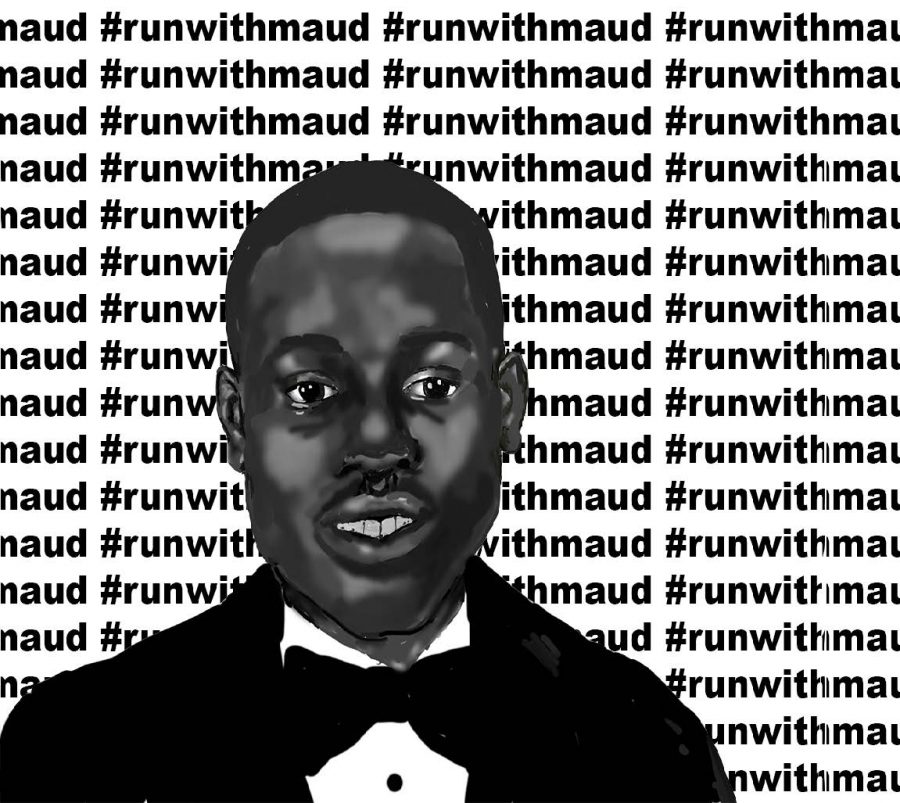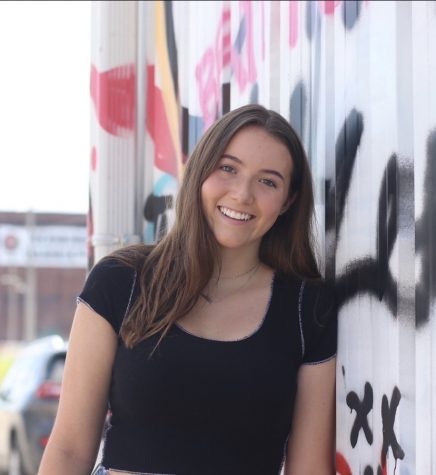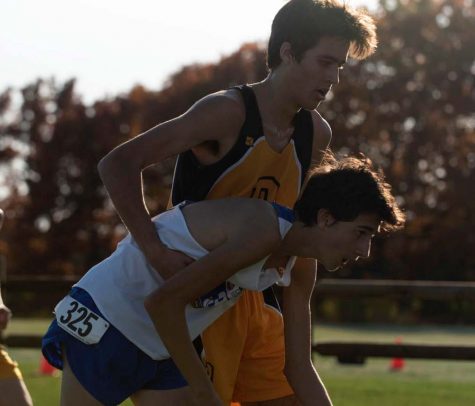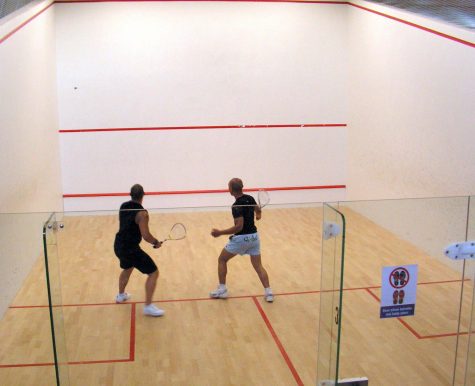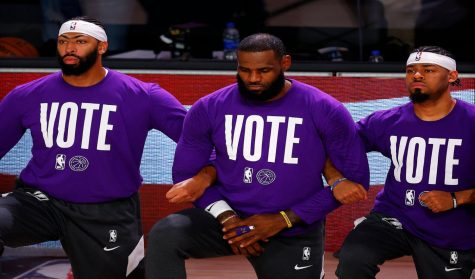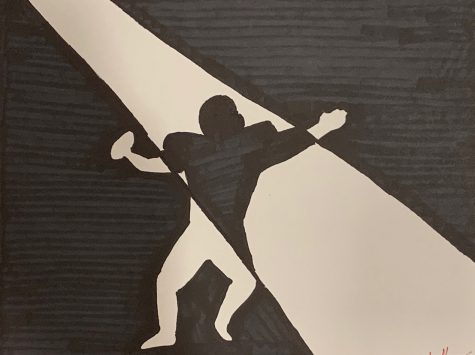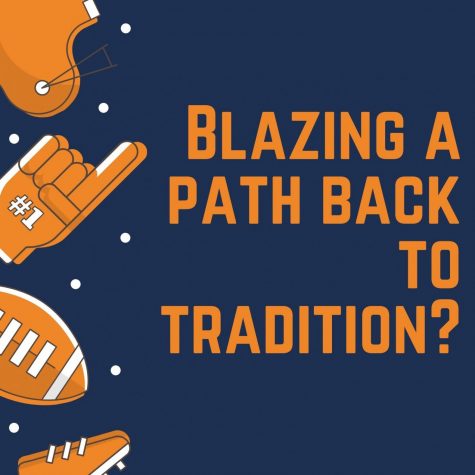Running Toward More Than a Finish Line
September 29, 2020
Track/XC Star Uses Her Talents to Enact Social Change
Sweat beads sprinkling from her cheeks, her breath blowing in and out in a steady rhythm, Kylie Goldfarb (‘21) pushes herself the last few meters before crossing the finish line- she has just completed another handful of miles out of the forty she will run this week. After nine years of dedication to her training, Goldfarb recently announced her commitment to run track at Yale University. Yet, running has recently taken on a much more meaningful role in her life. Goldfarb found her place in the rising sphere of social change in America after becoming the C.O.O of a not-for-profit organization named Runners Against Racism. Goldfarb described Runners Against Racism as an organization where “anyone can get involved; you can sign up as a runner and pledge money for every mile that you run, or you can sign up to donate a certain amount of money for every mile that a family/friend runs. If you want to run and don’t have the ability to pledge for yourself at the moment, you can also just run and ask others to pledge for you.” She has pledged to run forty miles every week, and has asked family and friends to pledge ten cents for every mile she runs. The organization raises money for programs aiding the Black Lives Matter movement, with the exact recipient changing intermittently. The first beneficiary was the Know Your Rights Camp COVID-19 Relief Fund, and in the coming months will be The Black Girls Code and the Equal Justice Initiative. Emily Cole, the founder of Runners Against Racism and a runner at Duke University, explained, “The whole point is to provide everyone with an avenue to support Black communities for the long term, so choosing a reasonable amount you can sustain is also a big recommendation!” The organization raised two thousand dollars in its first month and showed Cole, Goldfarb, and other members the impact their passion could have.
In asking Cole how her creation of this organization has changed her perception of running, she replied, “it has really opened my eyes to the dearth of programs like this in the running community. It has been truly amazing to see everyone join and support the cause, and made me extremely happy that I started it. Now when I go for a run, it has even more weight because I know I truly am running for something larger than myself- and that feeling is just indescribable.” Similarly to Cole, Goldfarb ex-pressed, “the organization makes my running much more meaningful because it gives me a reason to keep running when I’m tired and to run the extra mile; it makes a solo sport like running feel more purposeful.” Still, while thinking about the work being done by Runners Against Racism, it is important to bring up the intertwined history between those two things.
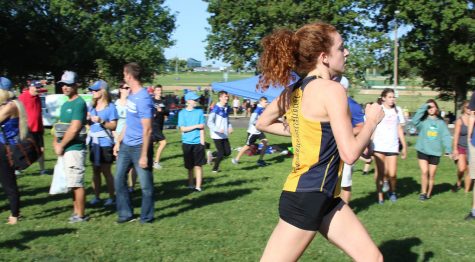
Racism and prejudice have been projected into the world of running more than a few times. White homeowners calling the police on Black people in their neighborhoods, stop-and-frisk laws, or the tragedy that was the murder of Ahmaud Marquez Arbery sit heavy in the minds of runners. In an article for RunnersWorld.com, award-winning multimedia journalist Rozalynn S. Frazier ex-plains that “while running may seem like a simple exercise, there is a hazard that comes with it for Black runners.” She says that in order to “compensate for color and defuse anticipated conflict many Black runners do things like wear an alumnus t-shirt of their university, run in well-lit areas, wave at neighbors, and even overtly smile while trying to run.” The running community created the movement #Irunwith-maud after Arbery was gunned down in Georgia on February 23rd, 2020 by two white men who thought him to be the suspect of a recent burglary. Hundreds of thousands of runners participated in the #Irunwithmaud virtual run on May 8th, and many pledged to continue running on the 23rd of every month until the crime was prosecuted. Goldfarb expressed to me that she had a similar realization following the tragedy, saying, “after the death of Ahmaud Arbery, the viral hashtag #Irunwithmaud circulated around the running community in order to show solidarity, and for me and many others it led to a lot of reflection. It made me realize that to go for a run every day without feeling in danger because of my race is a privilege. Ahmaud Arbery’s death brought national attention to the harsh reality that everyday activities are impacted by racism/white privilege.”
Runners Against Racism combines allyship with passion, and Goldfarb hopes the organization will inspire others to fuse their talents and interests with their pursuit of equality for all. She closed her remarks saying that “there are lots of ways that each of us can make a difference throughout our daily lives, whether it be joining/supporting an existing organization or creating your own way to get involved. It’s awesome when something that you’re passionate about can be used for the greater good.” In agreement with Goldfarb, Cole expressed, “I definitely think that anyone who wants to start something- a company, a non-profit, a social media account- should try it. Make sure it’s a project that is worthwhile and something you’re passionate about, and then don’t let anything get in your way!” In accordance with this edition’s theme, Cole continued, “one huge point I want to make is to not let age define you.”
If you are interested in pledging with Runners Against Racism either as a runner or donor, follow them on Instagram @runners.against.racism, like their Facebook page @RunnersAgainstRacism, or visit their website https://runners-against-racism.org.
